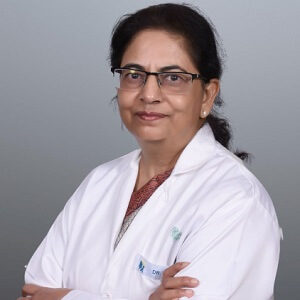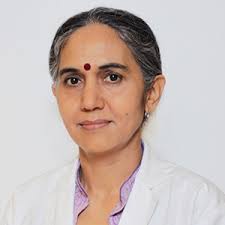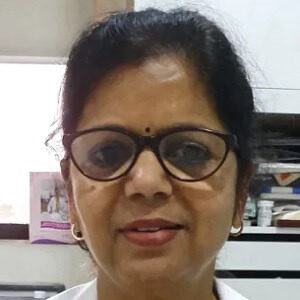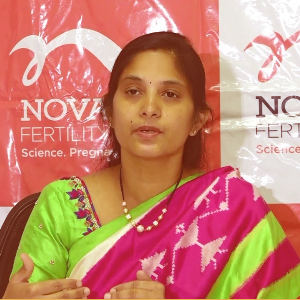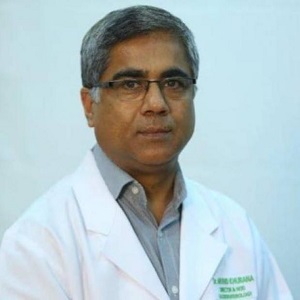Best Doctors in India for Alcoholic Hepatitis Treatment
- Dentist, Gurugram, India
- Over 20 years’ experience
- Fortis Memorial Research Institute
Profile Highlights:
- Dr. Ravi S Batra is one of the most popular faces in the Department of Dentistry.
- He has 16 years of experience in treating patients who belong to different age groups.
- Dr. Batra has expert hands in diagnosing and treating orthodontic problems which mostly need surgical rectification.
- Top Obstetrician & Gynaecologist | Apollo Hospital, New Delhi, India
- 22+ Years Experience
- Indraprastha Apollo Hospital, New Delhi
Profile Highlights:
- Dr. Sohani Verma is a well-known Gynecologist and Obstetrician in India, with approximately 22 years of experience in numerous treatments in these disciplines. Dr. Verma serves as a senior consultant at Indraprastha Apollo Hospitals.
- She specializes in infertility and IVF treatments, and she also founded a sperm bank in the hospital in 2002. She has 22 years of IVF and infertility experience in the UK and India.
- Dr. Sohani Verma worked as the Academic Coordinator for the Department of Obstetrics and Gynaecology at Indraprastha Apollo Hospitals in New Delhi.
- Top Surgical Oncologist | Apollo Hospital, New Delhi, India
- 32+ Years Experience
- Indraprastha Apollo Hospital, New Delhi
Profile Highlights:
- Dr. Shefali Agrawal is one of the best surgical oncologists in India, with more than 32 years of experience in the field.
- Dr. Agrawal is practicing as a Senior Consultant Surgical Oncologist at Indraprastha Apollo Hospital, New Delhi.
- The doctor took several certified training in surgical oncology in the USA.
- Dr. Agarwal specializes in Hepato-Pancreato-Biliary Cancer. She also finds her interest in Medical Oncology, management of Cervical Cancer, Phyaryngeal Cancer, Brain Cancer, Bone Cancer, Colo-rectal Cancer, Ovarian Cancer, Bladder Cancer, and Fallopian Tube Cancer.
- Dr. Agarwal has published several articles and papers in esteemed national and international journals.
- Top Ophthalmologist | Max Hospital, Saket, New Delhi, India
- 20+ Years Experience
- Max Super Specialty Hospital, Saket, New Delhi
Profile Highlights:
- Dr. Amanjot Singh has been practicing medicine for 20 years. Her specialization lies in cataract surgery by phacoemulsification and LASIK. She has been conducting training in Phacoemulsification at SGHS hospital in Sohana and at Centre for Sight, New Delhi prior to joining Max Healthcare.
- She has multiple specializations including refractive surgery, corneal surgery, eye muscle surgery, oculoplastic surgery, etc. Dr. Amanjot is a member of the Delhi Ophthalmic Society and the Bombay Ophthalmic Society.
- Top Obstetrician & Gynaecologist | Apollo Hospital, New Delhi, India
- 35+ Years Experience
- Indraprastha Apollo Hospital, New Delhi
Profile Highlights:
- Dr. Sushma Prasad Sinha is one of the top Gynaecologists and Obstetricians in India, having over 35 years of experience. She is primarily a well-known name in infertility & IVF with an unrivalled success rate.
- Dr. Sinha specialises in the ovarian cyst, fibroid, endometriosis, and ablation laparoscopic procedures; hysteroscopic surgeries, vaginal surgeries, tubal reconstruction, Colposcopy, loop cone cervical biopsies, and fertility preservation surgeries.
- She works in Indraprastha Apollo Hospital as an obstetrician and gynaecologist.
- Dr. Sushma Prasad Sinha has also written articles for many medical publications and a book chapter titled “Effective Approach to Basic Evaluation of Subfertile Couples.”
- Top Urologist | Apollo Hospital, New Delhi, India
- 42+ Years Experience
- Indraprastha Apollo Hospital, New Delhi
Profile Highlights:
- Dr. Suresh Kuamr Rawat is one of the best Urologists in India, having a grand experience of 42 years in the field.
- His services extend into prostrate laparoscopy, TUIP, TURP, minimally invasive surgery, etc.
- Dr. Suresh Rawat is practicing as a consultant with the Department of Urology at Apollo Hospitals, New Delhi.
- Dr. Rawat specializes in neuromuscular disorders, Andrology, and complex urological surgeries. He is an expert doctor for Endourology, Uro oncology, Reconstructive Urology, Female Urology, and Pediatric Urological treatment.
- IVF Specialist and Gynaecologist, Hyderabad, India
- Over 15 years’ experience
- Nova IVI Fertility Hyderabad
Profile Highlights:
- Dr. Saroja Koppala is an expert Gynecologist and Obstetrician who is highly trained and experienced in all forms of ART and has helped in achieving a large number of successful pregnancies.
- She received most of her trainings in infertility and reproductive medicine from prestigious fertility clinics in the UK and has also spent a considerable amount of time in practicing at several renowned hospitals.
- Dr. Koppala finds interest in the management of women with recurrent miscarriage, repetitive implantation failure, failed IVF cycles, endometriosis, adenomyosis and low ovarian reserve.
- GI Surgeon, Gurugram, India
- Over 33 years’ experience
- Fortis Memorial Research Institute
Profile Highlights:
- Dr. Arvind Kumar Khurana is a well-known name in the field of gastroenterology and has a keen interest in Gastroenterology, Hepatology, Endoscopy, Onco-Gastroenterology, and Endoscopic Ultrasound.
- Dr. Khurana has successfully performed over 1,50,000 Endoscopic procedures, including over 20000 cases of EPT/CBD stones removal & Biliary Stenting, 2000 metallic stenting, 950 cases of foreign body removal, and 2000 PEG cases.
- Top Obstetrician & Gynaecologist | Apollo Hospital, New Delhi, India
- 33+ Years Experience
- Indraprastha Apollo Hospital, New Delhi
Profile Highlights:
- Dr. Geeta Chadha is a distinguished Obstetrician and Gynaecologist with over 33 years of comprehensive experience in the field.
- Affiliated with Apollo Hospitals Indraprastha in New Delhi, Dr. Chadha has built a reputable career specializing in high-risk pregnancy care, infertility treatment, and advanced gynaecological procedures.
- Dr. Chadha earned her MBBS and MD degrees, followed by advanced specialization through the FOGSI (Federation of Obstetric and Gynaecological Societies of India) certification in Obstetrics and Gynaecology.
- Sr Consultant Doctor in Obstetrics & Gynaecology, Gurugram, India
- Over 30 years’ experience
- CK Birla Hospital Gurugram
Profile Highlights:
- Dr. Manavita Mahajan has been a practicing obstetrician & gynecologist in Gurugram for the last 30 years.
- Known for being a strong proponent of safe motherhood practices, Dr. Mahajan has worked to implement these practices in her hospital practice as well. She has also been a speaker and faculty on gynecological laparoscopy at several national conferences because of her laparoscopic surgical skills.
- Dr. Mahajan is also a trainer and faculty in various educational programs.
Best Hospitals in India for Alcoholic Hepatitis Treatment
ALCOHOLIC HEPATITIS
Alcoholic hepatitis is a liver infection, which is mainly caused by frequent, heavy use of alcohol. Fat can build up in the liver cells, which might lead to inflammation as well as scarring of the liver.
Alcoholic hepatitis might be mild or severe. A patient might even need a liver transplant if proper treatment is not provided, or if they don’t stop consumption of alcohol.
It is also notable that all heavy drinkers don’t develop this condition, and sometimes this condition even develops in people who drink moderately. However, if you are diagnosed with this condition, it is important for you to quit drinking alcohol. People who continue drinking alcohol might face a huge risk of serious liver damage as well as death.
Symptoms
Depending on the amount of damage to the liver, the symptoms can vary. If you are having a mild form of the disease, you might not even experience any symptoms at all. However, as the damage continues to grow, you might experience the following:
- Changes in appetite
- Dry mouth
- Weight loss
- Pain or swelling in the abdomen
- Jaundice, or yellowing of the skin or eyes
- Fever
- Nausea and vomiting
- Easy bleeding or bruising
- Changes in your mental state, including confusion
- Fatigue
The symptoms of this condition are similar to those caused by a few other health conditions. Therefore, if you develop any of these symptoms, it is best to get a proper diagnosis as well as begin treatment.
Causes & risk factors
Alcoholic hepatitis generally develops when the alcohol you drink causes damage to your liver. However, it is not clear why alcohol does this damages only to some heavy drinkers.
Few factors that are known to play a role in this condition include:
- The body’s process that breaks down alcohol produces some toxic chemicals
- These chemicals can trigger inflammation that can destroy the liver cells
- Thus, over time, scars replace healthy liver tissue, thus interfering with the function of the liver
- This irreversible scarring, which is also termed cirrhosis, is the final stage of alcoholic liver disease
If you have hepatitis C and continue to drink, even moderately, you are more likely to develop cirrhosis.
Some heavy drinkers are also malnourished because they don’t eat a proper balanced diet. Alcohol and its byproducts also prevent the body from absorbing nutrition properly. Lack of nutrition can contribute to liver cell damage.
Some other risk factors that can lead to this condition include:
- Your sex- Women are usually at a higher risk of developing alcoholic hepatitis since the way alcohol is processed in women is different.
- Binge drinking- Having over five drinks within two hours for men and four or more for women can increase the risk of alcoholic hepatitis.
- Obesity- Heavy drinkers who are overweight are also more likely to develop alcoholic hepatitis and to progress from that condition to cirrhosis.
- Race and ethnicity- Hispanic and Negroid people might be at higher risk of alcoholic hepatitis.
- Genetic factors- According to studies, there may be a genetic component in alcohol-induced liver disease. However, it is difficult to separate genetic and environmental factors.
Diagnosis
If you are showing symptoms of alcoholic hepatitis, your doctor will first inquire about your medical history and alcohol consumption. Next, he/she will perform a physical exam to see if you have an enlarged liver or spleen. They might also need a few more tests to confirm your diagnosis, such as:
- Complete blood count (CBC)
- Liver function test
- Ultrasound of the liver
- Abdominal CT scan
- Blood clotting tests
In some cases, a liver biopsy might also be needed to confirm the diagnosis of alcoholic hepatitis. A liver biopsy requires your doctor to remove a tissue sample from your liver, which is then tested in the lab. This method helps to show the severity and type of liver disease.
Treatment
Stopping alcohol consumption is the most important treatment for alcoholic hepatitis. There is no cure for this condition, but treatment can help in reducing or eliminating symptoms, or stopping its progression.
It is also important to note that scarring of the liver is permanent, but treatment can aim to restore as much function as possible.
Dietary changes
Medication
Liver transplant
The best hope of recovery is to be aware of the signs and symptoms as well as to reduce, manage, or if possible, completely stop consumption of alcohol.
Complications
Alcoholic hepatitis might lead to severe other complications such as:
- Enlarged veins (varices)- In this condition, blood that is unable to flow freely through the portal vein, can back up into other blood vessels in your esophagus or stomach.
- Hepatic encephalopathy- This condition can be caused by the buildup of toxins if your damaged liver is unable to remove all the toxins from your body. It involves confusion, drowsiness, and slurred speech.
- Ascites- Ascites is a condition in which the fluid that accumulates in the abdomen may get infected and thus, require treatment with antibiotics. Although this condition is not life-threatening, it can be a sign of advanced alcoholic hepatitis, or cirrhosis.
- Kidney failure- A damaged liver affects blood flow to the kidneys, thus resulting in kidney failure.
- Cirrhosis- The scarring of the liver might lead to liver failure.
Prevention
Alcoholic hepatitis might be prevented if you take the following steps:
- Drink alcohol in moderation, if at all- For healthy adults, moderate drinking means no more than one drink a day for women of all ages and men older than 65, and not over two drinks a day for men aged 65 and younger. However, if you prevent all alcohol, it is a certain way to prevent this condition.
- Check before mixing medications and alcohol- Ask your doctor if it’s safe to drink alcohol while you are taking medications. Consider reading the warning labels on over-the-counter medications as well. Don’t drink alcohol when you are taking medications that warn of complications when combined with alcohol.
- Protect yourself from hepatitis C- Hepatitis C is an infectious liver disease that is caused by a virus. If it is left untreated, it may lead to cirrhosis. If you are having hepatitis C and you consume alcohol, you’re generally more likely to develop cirrhosis than if you don’t drink.


